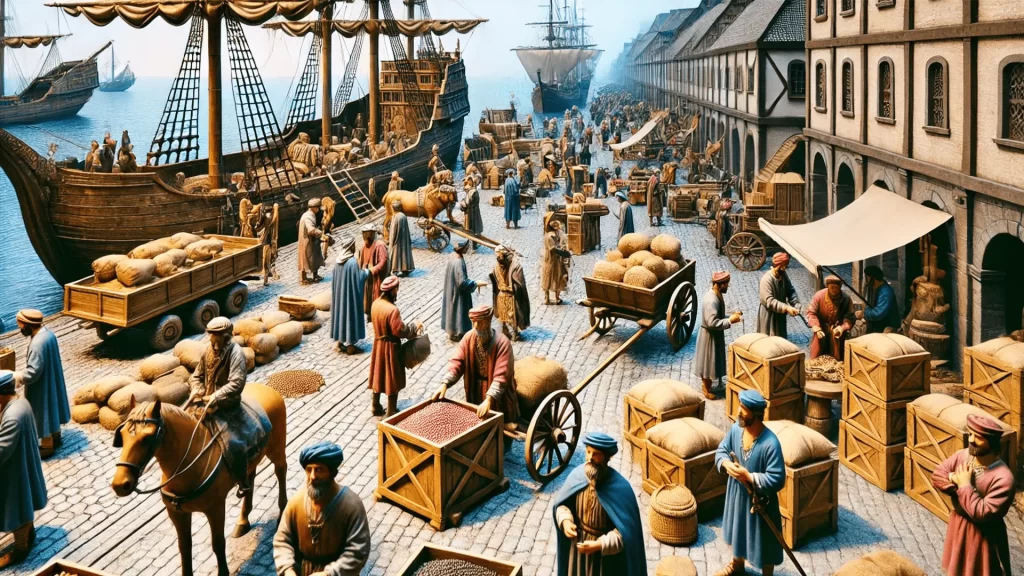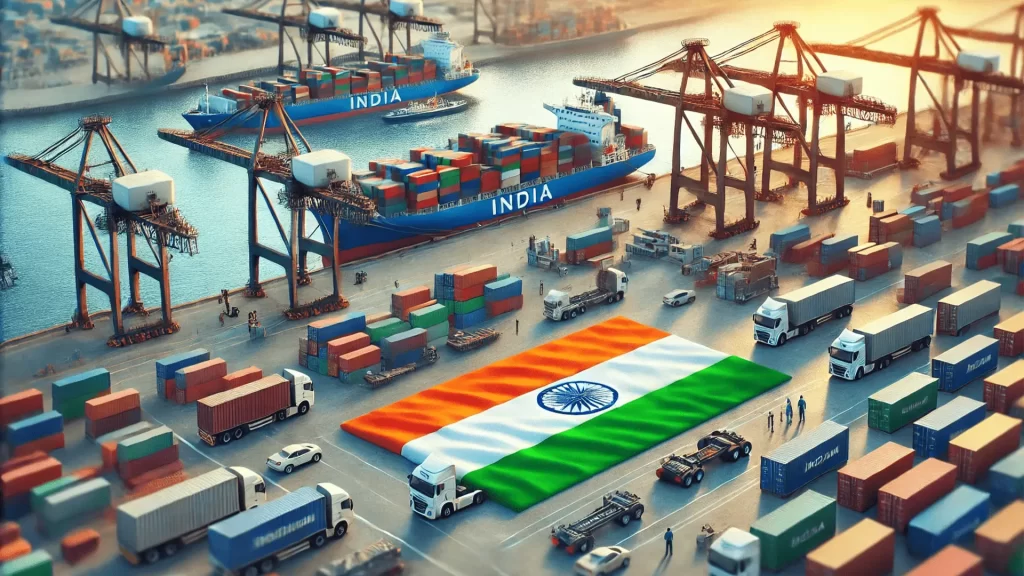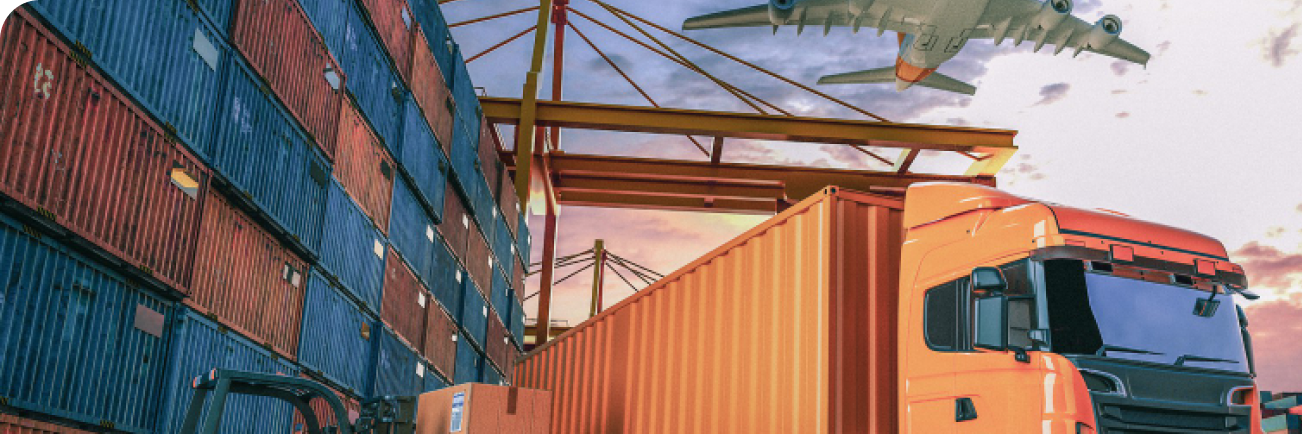Although Logistics Day began to be celebrated in 2019, it has been the screws of mighty iron bridges of industries for centuries. After all, can you imagine a world without the Panama Canal – the 82 km artificial stretch of waterway connecting the Atlantic and Pacific Ocean or the Suez Canal- the shortest maritime route from Europe to Asia that reduced the travel time between Europe and the Persian Gulf from 24 days to 14 days? This National Logistics Day, let’s learn more about logistics – the function that is less talked about and honor the people who ensure your product is delivered timely, in every weather and situation.
National Logistics Day is celebrated on June 28 every year. But, is it particularly associated with India? Not really.
What began as a celebration of the relentless efforts of the USA’s logistics professionals, extended to the rest of the world as an ideal that demanded attention.
In 2019, Logistics Plus, a dynamic logistics firm in Pensylvannia’s Erie dedicated the day to a collective commemoration of the hard work of logistics workers in the USA.
And voila! Soon, countries worldwide embraced the day with equal gusto and enthusiasm.
This year, it will be observed for the sixth time to honor the sector that has always worked backstage and never cared to take any credit for the wonders they birthed.
Keeping the dubious nomenclature aside, let’s delve deeper into the term ‘logistics’ and the evolution of its meaning over the years.
What ‘Logistics’ meant centuries ago

The term ‘logistics’ was earlier associated with the movement of arms, ammunition, and supplies by military personnel during wars.
This is reflected in two of the several remarkable quotes on the importance of logistics. What can be better than sharing them on the eve of National Logistics Day, right?
Sun Tzu, the Chinese military general, strategist, philosopher, and most importantly, the author of The Art of War, said “The line between disorder and order lies in logistics…”. One can see how he credits logistics for maintaining military discipline which was once considered paramount for winning a battle.
This reference became even more emphasized when General Dwight D. Eisenhower, the 34th President of the United States and the commanding general of victorious troops in Europe in World War II, said, “You will not find it difficult to prove that battles, campaigns, and even wars have been won or lost primarily because of logistics.”
However, it moved on to being an integral part of business and trade terminology later.
What ‘Logistics’ means in the modern era

Logistics has become a common term for businesses nowadays. A term that encompasses the entire system of managing how to acquire, store, and transport goods or materials to the final destination.
Every manufacturer in the current global economic scenario prefers to outsource the task of managing its top and bottom line, that is inbound and outbound logistics. And why would they not? Growing globalization and the multitude of suppliers in the chain of production have made supply chains highly complex.
Now, logistics is not just confined to selecting prospective suppliers and distributors. Rather, it has expanded to getting skilled supply chain logisticians on board who are majorly responsible for managing inventory and figuring out ways for effective and optimized transportation of goods to the end customer.
This sort of expansion, although seemingly a challenge for businesses across the world, turned out to be an opportunity for some entities.
The inception of many logistics-specialized firms like our own Galaxy Freight and logistics management software was hence, seen as a welcome development.
These ventures not only significantly eased the grueling terrain of supply chain management but also helped their partner companies navigate through them for a better outcome in the future.
What started as a process of ensuring the timely delivery of goods, soon branched into demand forecasting, warehousing, material handling, inventory control, order processing, transportation, and most importantly customer service.
The India Chapter
The Indian logistics market is sketched to reach an impressive mark of US$ 380 billion by 2025 with a CAGR of 10-12 per cent.
How Covid-19 shaped Indian logistics landscape

The COVID-19 pandemic proved to be a huge game-changer for the logistics industry all across the globe. Once so secure in their designated supply chain bubbles and predetermined sourcing strategies, many countries took to mulling over new alternatives, focusing largely on natural and geopolitical disruptions that had the potential of putting immense strain on traditional supply channels.
A similar wave of rethinking took shape in India as well. A ‘looking back’ both regionally as well as in terms of retrospection began. The Make in India campaign announced in 2014, gained gravitas and the government gave a special impetus to local production of goods.
Besides, the Production Linked Incentives schemes were propelled to a new direction. First aimed at enhancing localized production of electronics goods, pharmaceutical raw materials, and devices (key starting materials, drugs intermediaries, and active pharmaceutical ingredients), the scheme soon expanded to more sectors including automobiles and auto components, textiles, steel, food products, telecom and networking, high-efficiency solar PV modules, Advanced Chemistry Cell (ACC) batteries and most recently drones and drone components.
After almost a decade, the “Make in India” initiative is finally taking shape in the form of companies like Foxconn, Wistron, Pegatron, and Kia Motors (amongst others) setting up manufacturing facilities across India.
This has led to a simultaneous increase in investments pocketed by established logistics service providers and freight forwarding companies.
But, the biggest achievement for the Indian logistics sector was its respectful inclusion in the category of ‘infrastructure’. The Indian government recognized logistics as an essential link holding together several mega-infrastructure projects.
What changed in Indian logistics in the last decade?

While the Indian government had been making some serious strides to optimize its various modal networks through projects like Bharatmala Pariyojana, National Highway Development Programme, Logistics Efficiency Enhancement Program (LEEP), Sagarmala Pariyojana, etc, the National Logistics Policy launched on September 17, 2022, marked the beginning of a roadmap, that took years of research and planning to set the path for future.
One of the key objectives of the National Logistics Policy is to reduce the logistics cost that currently stands at 13-14 per cent of the GDP to single digits, to bring India at par with the developing countries. If accomplished, this will not only lead to businesses retaining crucial funds for more important functions but also give a level playing field for start-ups and MSMEs.
The Policy is also aimed at giving the much-needed push to the rail freight services which had a meager contribution of 18 per cent (in 2021) compared to the massive 71 per cent of roadways.
Dedicated Freight Corridors (East and West) – rail networks dedicated to freight- will spearhead an era of cost-effective transportation of goods through an increased rail freight share and modernize the rail infrastructure of India. Although launched in 2005, post-2014 it was fast-tracked by the NDA government significantly.
The Eastern corridor is ready to be brought to action and 90 per cent of the Western corridor is operational, gearing up for a full-fledged launch soon.
The e-commerce revolution in India

An unprecedentedly strong demand for e-commerce goods changed the logistics landscape for the entire world, especially countries like India where the tier-2 cities were yet to be aspirational enough for goods to be delivered to their doorstep.
This sudden e-commerce penetration, fuelled by the growing millennial and consumer tech-aware population, compelled companies to invest heavily in localized warehouses, omnichannel distribution, and fulfillment centers as ancillary infrastructure for D2C companies like Blinkit, Shiprocket, Dunzo, Zepto, etc.
As the D2C industry made its individual space, the last-mile delivery system had to be optimized. This is where the EVs perfectly fit the bill. Perfectly timed with the government-sanctioned incentives for a greener alternative to the traditional heavily polluting ICE vehicles, the D2C industry leveraged this opportunity to deploy entire fleets of EVs.
The EVs which were otherwise considered incompetent because of the range anxiety issue, became a more cost-efficient as well as environment-friendly option.
Galaxy Freight for your logistics needs

Galaxy Freight is a tried and tested name in the freight forwarding industry. Irrespective of the size of your shipment and stipulated delivery timelines, we have been delivering a seamless shipping experience by streamlining every step of the process. After registering with us, you can finally relinquish all worries related to the goods securely reaching their desired destination.
The moment the shipper places an order, our diligent team goes above and beyond to ensure that your shipment reaches the nearest port or airport for the fastest shipping times. And, throughout the journey, the real-time tracking system updates you 24*7 with the shipment status.
Our 30+ years of experience in the freight forwarding industry has equipped us to handle customs clearance with unmatched efficiency.
Our diverse suite of services makes us a one-stop shop for all your logistics needs. Our services include air freight, sea freight, dangerous goods transportation, pharma, and life science shipment, time-critical shipments or Next Flight Out (NFO), international courier, warehousing, and packaging.
Our reliability as a partner is reflected in our dedicated efforts to support our clients in their journey of business growth, more so that they can focus on more crucial operations and leave the rest, comfortably, with us.
Let us walk the extra mile for you! Reach out to us at contact@galaxyfreight.com.



